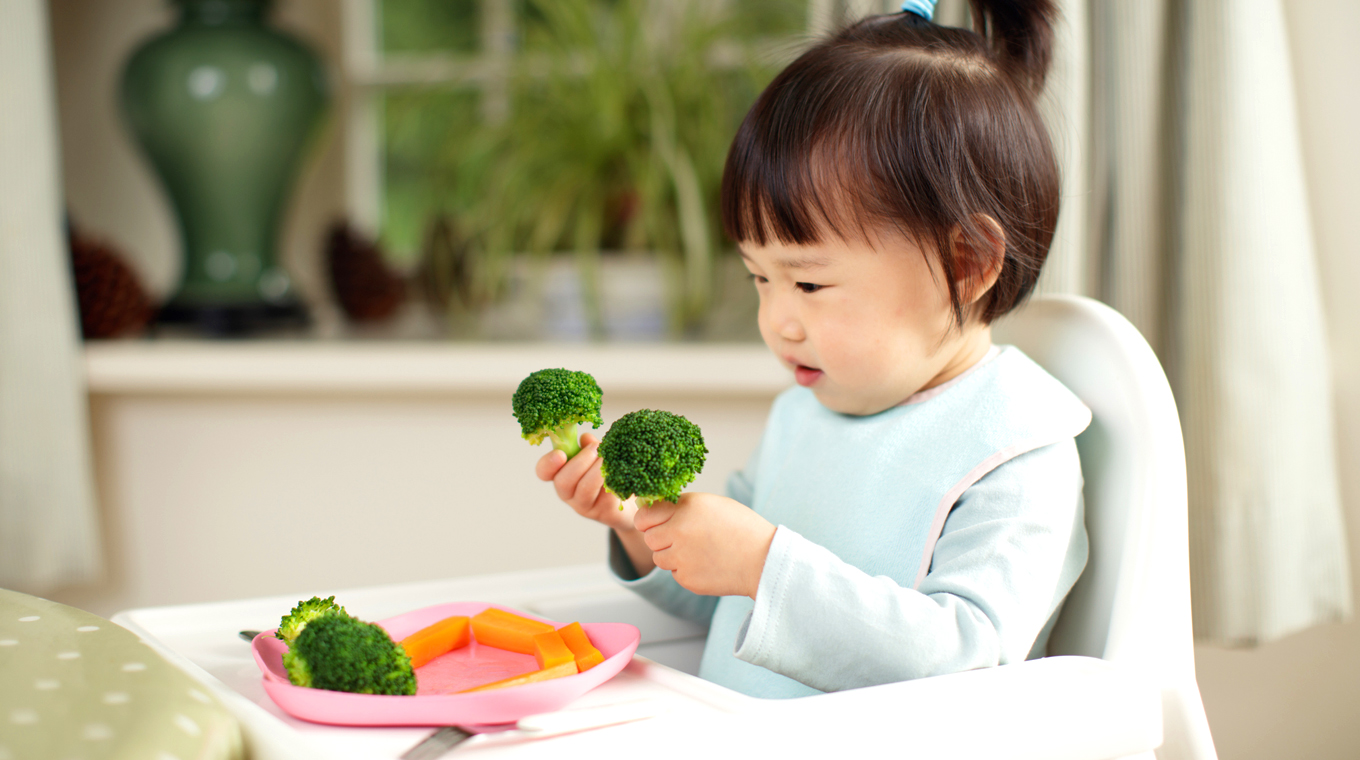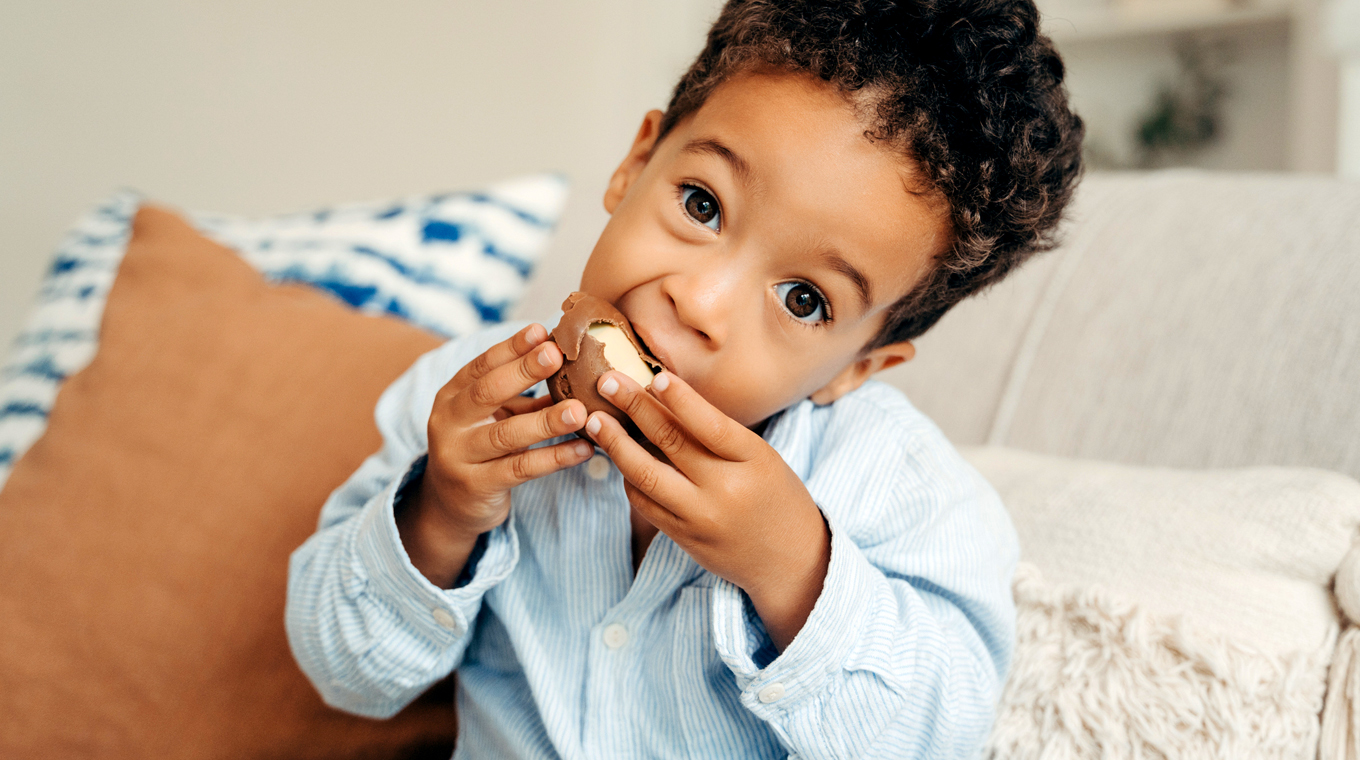In this article
Once your toddler begins exhibiting a sense of individuality and self-awareness, you may find yourself hearing the words “No!” or “I’ll do it!” more often. When this newfound independence finds its way to the kitchen table, you may end up with a full-blown picky eater on your hands which can be challenging and nerve-wracking for everyone. Read on to learn how to deal with a picky eater and how to tell when it’s normal toddler behavior or a more serious problem you need to address.
Toddler eating habits: What is a picky eater exactly?

Ah, your darling toddler, so curious, so full of energy, so … picky! Many babies are epicurean adventurers, happily eating black beans and mango salsa or clamoring for pork chops and sauteed spinach. Then one day you wake up and all they will eat is rice and cheese. It’s tempting to launch into a well-intentioned campaign where you end up trying to cajole your child to eat, making airplane noises with a spoon, or adding spinach to brownies, all to no avail.
It’s not personal, many a caregiver has been crushed under the tyranny of a toddler’s palate. But don’t lose heart.
Changes in food preferences and eating habits are completely normal in toddlers, pediatric dietician Jennifer Friedman told Mom.com. “Estimates show that most kids go through some form of picky eating at some point,” Friedman explained.
“While there’s no single presentation, ‘typical’ picky eating tends to look like increased food preferences, fickle behaviors, increased rigidity and strong preferences with eating, variable appetite, and gravitating toward blander foods,” the Stories of Extreme Picky Eating author said.
Why is my toddler not eating? Picky eater or something more serious?

So how do caregivers differentiate between typical picky eating and something more serious?
“Kids with more serious eating challenges tend to lack the flexibility that allows them to eat out of the house or enjoy a variety of foods, even ones that they like,” Friedman clarified.
If your child is overly rigid when it comes to how food is prepared or if they’ll only eat one particular brand of food and are otherwise inflexible, this could indicate something more serious.
“You also want to look at the extent to which it’s interfering with their life,” Friedman advised. “Are mealtimes consistently ending in tears, for parents or kiddos, can they go to friends’ houses and birthday parties, are you limiting which restaurants you go to because they’re won’t be anything for them to eat, or holding off on family trips?”
Research indicates that 25% of parents say their toddlers exhibit food refusal. A portion of those were diagnosed with a feeding disorder due to severe food aversion, that compromised their nutritional intake.
In cases of extreme food refusal, when a child exhibits sensory-sensitive reactions to foods or extreme anxiety over trying new foods, caregivers should reach out to their child’s physician for a referral to a specialist or clinical psychologist.
“More extreme picky eaters may avoid eating entire food groups, often protein and veggies (carbs and dairy tend to be the favorites and most comfortable), and might have preferences based on sensory qualities like texture,” Friedman said.
How to get a picky toddler to eat

“Selective and temperamental eating is developmentally normal in toddlers. And for kids with more severe eating challenges, ‘picky’ doesn’t capture the extent to which they’re struggling,” explained Friedman. She also suggests letting go of the term “picky” when describing the child in your life. Using the term can become a self-fulfilling prophecy and older children may lean into this description, and struggle to change.
So, what can be done? For parents wondering how to get a picky toddler to eat, Friedman has some suggestions.
“Kids sense your stress and it will trickle down to them making eating even more difficult. Accept that it can be normal and do your best to support them. Continue to serve foods they ‘don’t like’ and reject.”
She also suggests taking the pressure off by not requiring your child to take bites or tastes of foods they don’t have an interest in. The best thing you can do for your toddler is to be a food role model, have fun with it and offer encouraging but neutral phrases like “We’ll try again tomorrow,” or “It looks like you’re not feeling that today.”
Jessica Mancinik, a mom of two from Raleigh, North Carolina, shares mealtime adventures with her children on TikTok and agrees with this sentiment when trying to get her children to try new foods.
“I remind my kids all the time that they do not have to eat it, I know our end game is to eat it but maybe we’re not there yet,” the feeding behavior specialist told WRAL News.
Toddlers are very sensitive to their parents’ “energy” around certain issues, such as potty training or feeding. Even if you don’t say anything, toddlers can pick up on a caregiver’s tension and worry over mealtimes and whether they’re eating enough. Be lighthearted and encouraging and chances are your toddler will slowly begin to try new foods.





